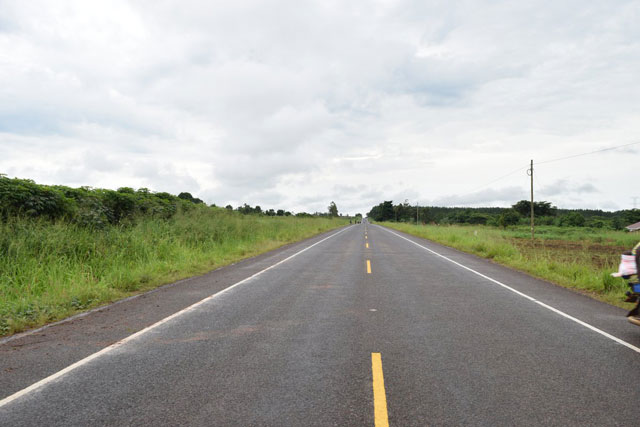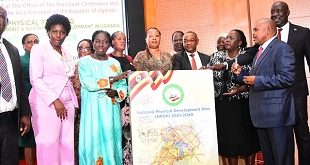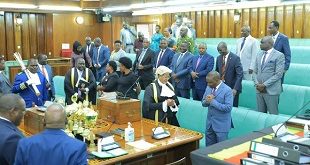
Kampala, Uganda | THE INDEPENDENT | The Physical Infrastructure Committee of parliament has approved the proposed expansion of Uganda’s road reserves from 15 to 40 meters.
A report authored by Robert Kafero Ssekitoleko, the Physical Infrastructure Committee Chairperson, notes that it is incumbent on government to secure land in form of road reserves to take care of future road expansion.
“Cognizant of the prevailing challenges of non-observance of and encroachment onto road reserves, periodic excavations of roads by utility service providers and in some cases the general absence of road reserves. With increasing traffic volumes in the country and the need for greater road safety, there is need for effective streamlining and protection of road reserves and also expansion of roads,” reads the Committee report reads.
Once approved by parliament, the proposal will ensure that national roads have a maximum width of road reserves of 40 meters, while district roads will have a maximum width of 20 meters and urban roads will have a maximum width of 15 meters.
Park roads will also have 15 meters, while community access roads will have 10 meters from the center. The committee rejected a proposal that states that affected persons shall not claim compensation in respect of any loss or damage caused by a road authority during implementation of its activities.
The Committee also recommends that the roads Authority should first acquire land in accordance with the constitution before acquiring the reserves. The committee also recommended that Government shouldn’t only focus on crowded areas but also move to underdeveloped rural areas.
The MPs also approved the proposal empowering the minister to set road tolls in accordance with classification of vehicles and sets out modalities for payment of the road toll. Among other things, the committee also increased the time within, which an abandoned vehicle can be disposed of from the proposed 30 days to six months to give the vehicle owner ample time.
The committee also reduced the time within, which a vehicle can be repaired on the roadside when it develops a fault from six to two hours. It also objected to the Shillings 200million fine for speed limit defaulters, saying it should be reviewed.
“While the Bill proposed hefty penalties as a deterrent measure against various offences, some of the penalties are out rightly exorbitant and unrealistic and this could render the law so hard to implement”. The Committee recommended that the Bill goes for the second reading subject to the proposed amendments.
******
URN
 The Independent Uganda: You get the Truth we Pay the Price
The Independent Uganda: You get the Truth we Pay the Price


